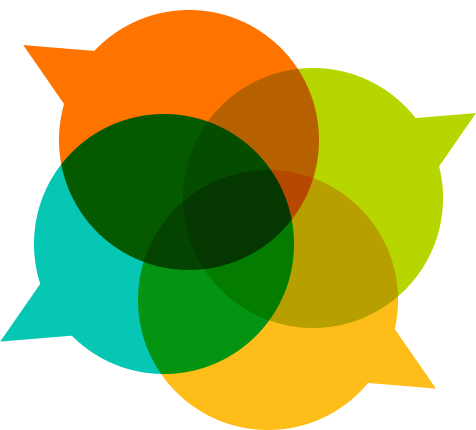Just like how facilitators support learners, new facilitators could use your help too. In fact, it’s not too different from how a learning circle works. Here’s a list of things that might help you support new facilitators who are interested in running learning circles. But first, have a listen to other facilitators offer their tips for new facilitators. Or, take @Steve_Capuozzo advice and “just do it!”
Values
Learning circles are based on the values of peer learning, community, and equity. Other values, like participatory and inclusivity, are aIso is important to consider. Ideally, the values that are present in a learning circle are also reflected in the interests of facilitator and the organization.
For example, learning circles are free to join and are strengthened by internal motivations, goals and self-interest. Similarly, as mentioned in team coordination best practices thread, new facilitators should feel like they can start a learning circle because they want to and they see a benefit in doing so. Similar to a learning circle, we won’t find much success if learners start getting paid huge sums just to attend a learning circle.
Modeling peer learning is very important too. If the one “supporting” new facilitators is answering every question in a lecture format, it is less likely that new facilitators will understand and model the value of peer learning themselves. Instead, where it makes sense, try responding to questions by saying things like “I’m not sure, but let’s try to find an answer together”.
Check-in
The metaphor of a check-in might be helpful here. It’s important to understand first what the goals of new facilitators are. How are they feeling about this work? Do they feel prepared? What are they worried about? What are they excited about? Once you have a clearer picture of what drives them, you can do a better job at supporting them, sharing helpful resources and connecting them with other people, who you know or part of the wider P2PU network, who have had similar experiences.
Coursework
When supporting groups of new facilitators, you might consider hosting a larger training workshop for interested facilitators, which can be organized with P2PU. The level of detail, intended goals, and support needed determine the length and session activities. P2PU often runs a half-day onboarding workshop (like this one co-facilitated by Tampa Hillsborough Public Library), but it is also possible to support a longer two-day workshop with extended in person or virtual support throughout the year.
Think about ways to team up with other local organizations and facilitators who might also gain value from this training. There might also be ways to share costs or host a larger regional onboarding workshop with P2PU partners.
Lastly, there are plenty of resources to share with new facilitators for them to read on their own or in groups like our P2PU facilitator page, the printable Facilitator Handbook, and throughout this community forum.
Activities
There are different ways of introducing learning circles. We’ve outlined some of these directions here, like introducing learning circles first internally as professional development. We’ve also seen ways that, after a half-day training, new facilitators are immediately encouraged to start a internal learning circle based on a topic they choose during the training workshop. It allows everyone to try organizing and facilitating a learning circle in a way they feel comfortable.
If new facilitators need extra support, you might consider co-leading a learning circle with them for the first few sessions until they are comfortable. You might also consider reviewing some facilitation tips and resources, like running a fishbowl.
Plus/ Delta
You’ve made it to the end! Some things worked and other things did not. What now? The idea of a learning circle is universal, but it only succeeds when it adapts to local interests and contexts.
So, run a plus/delta! Ask new facilitators what worked and what could be improved. Come up with solutions as a team and support each other to make the process better for everyone. If you’ve found things that work or don’t work for running learning circles or supporting new facilitators, let us know in this forum!
